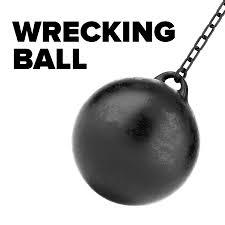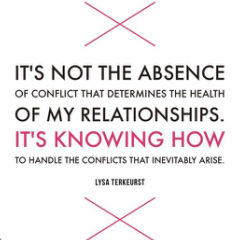|
NEWS FROM THE THERAPY ROOM. Tips and strategies that you can use in your own relationships. |
 Yikes - it's been so cold here in Christchurch over the last couple of weeks - I don't remember a winter this cold. And it seemed to arrive suddenly, following a summer that went on and on, and seemed to skip autumn completely. One thing about the weather going bad is that we are likely to wind up spending more time in close confines with our significant others. Hopefully that can be a good thing. So if the cold snap continues, make the most of the situation. Or if your relationship is not that important to you, work your way through the points below - and you can be sure that you'll likely wind up out in the cold, as you'll have wrecked your relationship well and truly. 1) Don't prioritise your relationship. Attend to everything else first: career, kids, friends, hobbies, sports, chores. Then maybe if there is still a little bit of time left, spend it with your partner. But keep any conversation brief and superficial. 2) When you really have an issue with your partner about something? Really go after them, be angry, use "The Tone," be defensive and don't show any real interest in hearing their perspective. Then, just to be really sure, throw in some sarcasm, and even some eye-rolling for good measure. 3) Then, when you recognise that things are going bad between the two of you, don't actually signal this to your partner. When the two of you are together, act as though there is nothing wrong. If they want to raise this with you, "I'm fine, thank you" is a good come-back, but it's best said crisply, and with no eye contact. Then, if you haven't already, 4) start to turn outside of the relationship for emotional support - start confiding in someone else (someone that you work with is usually good for this - it's convenient, you don't have to look too far), and be sure to tell them frequently how hard things are at home for you right now. Secret texting with them is a good way of keeping the support going outside of work hours. And if you wind up having sex with that person because "they really understand me", hey, even better.... 4) When there has been an issue or some point of conflict between the two of you, and it's not resolved, give them the silent treatment. Even if they talk to you, pretend they don't even exist - keep this going as long as you can. Then you'll be really showing them, and let's face it, maturity can sometimes be a bit over-rated. 5) Blame your partner for all the difficulties in the relationship, to them personally, but also to anyone else who will listen. Sure, we know there are two of you in the relationship, but your partner just has so many more issues than you, right? 6) Threaten to finish the relationship. Do this a lot - no matter how minor or workable the issues might be. Who really wants to go the distance anyway - it's just easier to start again. And again.... Hopefully you're not doing any of this stuff - but you'd be surprised how common these behaviours are. If even a couple of these are sneaking in, it's time to both roll your sleeves up, and start to seriously address things. Even with some of these going on, relationships can usually be salvaged and repaired, if both partners are committed. And of course, getting yourselves into therapy might be an important part of the repair process. Please feel free to contact me if you need any help with these issues, or any others. Talk Soon...  Welcome back! I've been working with families and couples for many years now. Sure, it can be a challenge at times, but it's always a privilege to be working with people, when they are looking into the face of some testing event or circumstance that's brought them through my door. I've been fortunate enough to have had some great training opportunities, with some of the leaders in the field, from all parts of the globe. But I've learned equally useful stuff from so many of my clients. You might then be wondering why they might be coming to see me in the first place, if they are actually teaching me useful stuff. Well here's the thing: often there are many parts of their relationship that might be going well - and it's only one part of it right now, that they are struggling with. Or talking with them in the early stages of therapy, they might disclose that back in the earlier days of their relationship, they had been doing some positive things that they had discovered this by accident, kept doing it, and it then turned out to be a really good relationship habbit. Those are the things that I find really useful to hear about - and the surprising thing is, they are often so blindingly simple. Readers who have been here before will know that I hate tips - the internet is awash with tips. And I have the belief that relationships and how to fix them can't be reduced down to simple bite-sized tips. But sometimes some basic pointers can have a useful role in prodding us to refocus on what's important - and thereby avoid a crisis. So here are are a few simple pointers (call them tips if you must!) from a few different sources. The bottom line is - regardless of where they have come from, they work. And there's nothing especially complicated or too challenging about giving them a go - they certainly aren't going to make things worse. 1) Notice what works - and mention this out loud to your partner. It might be something you are doing together, or it might be something that just he or she is doing. It might be intentional - it might not. But you notice that somehow it makes things a bit better. Tell your partner - thank them for it. Chances are they will then keep doing more of it, which is what you want. 2) Re-prioritise. In the midst of busy lives - it's easy to get distracted by all the other busy-ness. Careers/kids/mortgages/studies/renovations and all of that goes with it. Yet the couple relationship is often the foundation to all that rushing stuff. Those things probably wouldn't be there now, if the relationship hadn't been there first. So re-prioritise what is important. Even your kids will be better off if you focus first on your couple relationship. 3) If you are going through a tough spot, or relationship issues are developing, change yourself first. Although you might have some big couple issues to address, what you personally bring/don't bring to the table will also be important. It's very rare that just one of the partners needs to change. There will be something you are doing that is not helping your relationship. 4) Learn how to manage conflict. Notice I didn't say resolve it - (if you can, well and good). As I've mentioned a mountain of times before, conflict is an inevitable part of close human relationships. (I have more concerns for relationships where the participants claim they have NO conflict - but that's a whole other blog post). People in successful relationships have usually worked out ways of managing the conflict so that it doesn't get out of hand. Ways of doing this can be very unusual, or unique to the couple, and might be strategies they have just stumbled upon. They might include things like knowing what they disagree on, and staying away from those areas. Or if an issue must be discussed, putting a time-limit on the discussion. And, perhaps most importantly - recognising that "your views are just your views - neither is right or wrong, just different". Learning how to just MANAGE conflict should be Relationship 101 stuff - if we can master that from the early stages of a relationship, so much of the rest of the relationship then falls into place around it. There are heaps of other pointers, but staying focused on even just a couple of these ones can make things a whole lot better. Remember too, if you need help with relationship stuff, feel free to contact me here. Remember too, to check out what's going on over at my Facebook page.... Talk soon...  Watch Your Delivery Watch Your Delivery Delivery is everything - this includes that Samsung 52 inch smart television that you bought on impulse but then couldn't fit in the back of the car. Having to then get it delivered meant missing out on worshipping it from the couch that weekend. But delivery also plays an important part in how we talk with people who are important to us. People that I work with, especially those in couple relationships or in families, will often come in the door struggling with issues, with these having morphed in to large conflicts because they were not managed well. And a big part of the mis-management of conflict is often in how we raise these: the delivery, or how we bring something up with someone, especially if we anticipate that they might become a little challenged or defensive in return. And of course in any type of relationship that contains a degree of history or closeness, or both, there will be occasional points of difference/issues (or whatever we want to call them) and we need to have good skills at raising and addressing these issues, so that they don't blow up - that's why our delivery is so important. What is not OK, is when the said issues are raised in confrontational or angry or shaming kinds of ways. That's only going to make the person on the receiving end angry or defensive in return - they will only hear your tone or irritability, so there's not going to be any useful conversation that could lead to a resolution. This is a very common dynamic that brings undone many relationships. So this is where the whole idea of the delivery comes in. You want your partner/friend/parent/child/boss/employee to hear you, as the issue is important enough for you to raise it. And you want them to at least hear your concerns and then think about doing something differently as a result. That's why it's important to do this in a way in which they can hear the message - and not just the angry tone of the messenger. So please watch your delivery - so much rests on this. Although our delivery is a crucial component of managing potential conflict well, there are of course other ingredients we need to use if we want to manage conflict better. Check out what Ashley Davis Bush and the folks over at Psych Central have to say about this important topic. And of course if conflict is not being managed well in your relationship and you want to do this better, feel free to contact me for some assistance. Talk soon....  There's so much that's been said before about stepfamilies - I won't try and say it all again here. That would have me raving on yet again, with one of those super long blog posts - where you kind of doze off somewhere in the midst of that huge sea of text round about the paragraph five or six mark. Besides, there are heaps of people around who specialise in writing for and about step/blended/reconstituted/new families (maybe after all this time, we could just simply call them 'families') , and they do it so much better than I could ever aspire to. However, in the interests of supporting blended families and the multitudes of challenges they live with, I do want to mention a few things (OK, there's five..), that I've noticed from my practice, which seem to be areas where folks frequently get bogged down. If you've lived in a blended family at some point in your life, chances are you've got your own essentials that you'd add to your own list. There are probably at least another dozen points I'd like to include here. But for now, here are my Big Five:
That's it from me - watch out for the blades in the blender - they can be sharp! As always, if you live around these parts of the planet (Christchurch, New Zealand), and you want help with any of this stuff, please feel free to make contact with me. Otherwise, catch you soon... |
"Some occasional thoughts about families, relationships, and other things that distract us...."
Categories
All
|
- This is not an emergency service. Information on these pages is not meant to take the place of input from a registered mental health professional in your community.
- For urgent or crisis mental health care in the Christchurch, New Zealand region, please call Freephone 0800-920-092 (24 hours x 7 days).
- Family Therapy Christchurch | Couples Therapy Christchurch | Couple Counselling | Relationship Counselling | Family Counselling Christchurch





 RSS Feed
RSS Feed